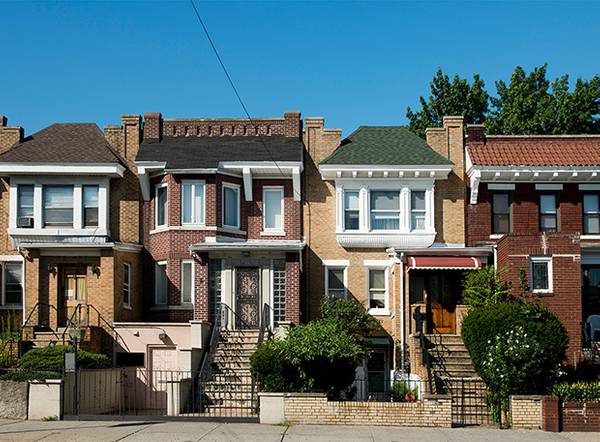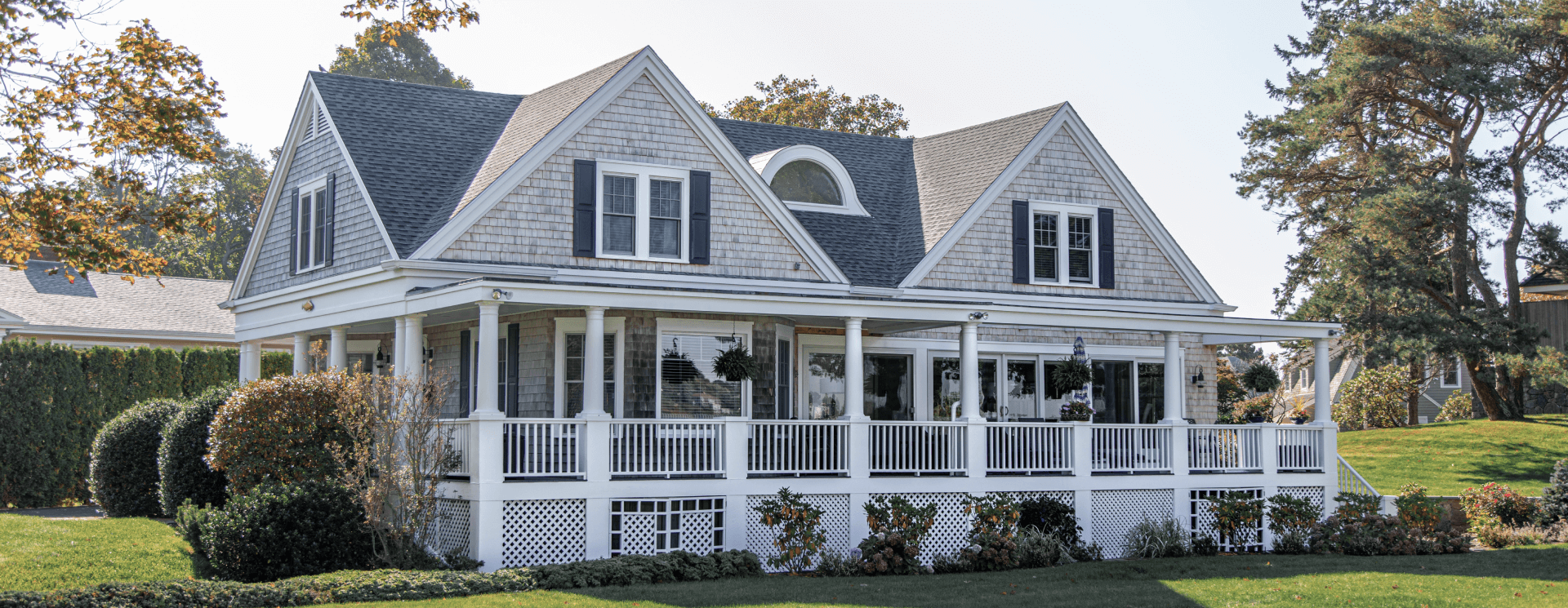
There is no single right answer to this question. Both buying and renting have potential pros and cons, and each individual or family has to analyze these, based on their current finances and desired lifestyle.
In other words, the right answer for you is the one that’s most beneficial to your financial — and psychological — well-being.
Four questions to start the decision process:
- Am I ready to make a steady financial commitment?
- How long do I plan on living in the house?
- What is the state of the current housing market?
- Which option may cost less every month and in the long run?
Buying vs. Renting Pros and Cons
Potential benefits to owning a home:
- Good long-term investment. Over time, the value of homes has tended to rise faster than inflation, meaning that homeowners receive a positive return on their investment. The Federal Reserve Bank of St. Louis reports that the average sale price of homes in the United States rose 28 percent between 2009 and 2019.
- Lower cost over time. When rental costs are rising, home buyers are likely to pay less over time in housing costs.
- Building equity. Equity is the home buyer’s fully owned interest in the home at a given time. It’s the difference between what a homeowner owes on their loan and the potential sale price of the house. Equity is built in a home as the owner pays down the mortgage and/or makes improvements on the property.
- Federal tax benefits. Mortgage interest, property taxes and some closing costs are tax deductible for many taxpayers.
- Freedom. Owners have more leeway in how they can renovate, decorate and even live in their homes. They can have pets without anyone’s permission or add a pool in the backyard. They can also experience pride of ownership.
Potential disadvantages of home ownership:
- Upfront costs. It can take a significant lump sum of money to purchase a home. Home buyers have to cover a down payment and closing costs. Closing costs cover not only various service fees for inspection, title search, processing, etc. but also initial payments for property taxes, mortgage, and homeowners insurance.
- Maintenance costs. These fall on the homeowner and can be substantial, depending on the age and condition of the home.
- Potential for losing value. Housing values don’t always rise. Property values fell nationally during the 2008 housing crisis. Regional and local issues can also adversely affect housing values.
- Illiquidity. The value of a home isn’t quickly turned into cash when needed, although home equity loans can help by allowing homeowners to use the equity in their home as loan collateral.
Potential benefits of renting:
- Low initial costs. Renters rarely need to pay more than a security deposit plus first and last month’s rent before moving in. They may pay even less.
- Lower monthly payments in the short term. Renting an apartment is often less expensive than buying a house. There are even markets in which renting a comparable house may be less expensive on a monthly basis than buying it, but this is not always the case.
- No maintenance costs. Generally, the landlord will be responsible for the cost of upkeep and fixing any problems from a leaky faucet to a leaky roof.
- Flexibility. It’s much easier for renters to move when their lives or situations change.
Potential disadvantages of renting:
- No investment value. Renters do not get a return on the money they spend for housing.
- No credit boost. Paying down a mortgage can improve credit scores, but paying rent does not.
- Lack of freedom. The landlord makes the rules. Also, tenants generally cannot make cosmetic or functional changes to their home, like painting or adding a fence or pool.
Mortgage vs. Rent: How are Rent and a Mortgage Different?
Some of the financial pros and cons of buying vs. renting are related directly to the difference between paying off a mortgage loan and paying monthly rent.
One of the basic differences is in the stability of monthly payments over time, although this depends on the type of mortgage used. With a fixed-rate mortgage, homeowners will pay the same monthly amount for principal and interest until the loan is paid off, even if this is 30 years from now. Fixed long-term payments makes budgeting simple and reliable. In contrast, while rent stays steady for the length of a lease, it can potentially rise every time the lease is renewed.
With an adjustable-rate mortgage, monthly payments can vary and could potentially rise every year after the initial fixed period, similar to rent. However, there are annual and lifetime caps on the rise in interest rates for an adjustable-rate mortgage loan. There are no limits on how much a landlord can raise the rent, except in rent-controlled areas such as some sections of New York City.
In addition to payment stability, people need to think about investment return when considering buying vs. renting. With a mortgage, a homeowner is building equity, as long as the home’s value rises or stays level. Of course, if the value of the home declines, a homeowner can end up losing money. This is unusual but it happened to many homeowners in the 2008 national housing crisis.
Paying rent offers no opportunity for a return. However, when renting is cheaper than buying, renters who invest the money they save in higher-yielding investments could end up making more money than those who choose to buy. This is especially true in the early years of a mortgage, when payments are applied mostly to interest rather than principal. That’s why buying is generally a better financial move for people who plan to stay in their home for a while.
Use Our Buying vs. Renting Calculator
Using the calculator on this page can help you determine whether buying a home is a better deal for you than renting, or vice versa. The decision depends on many factors, including the time you expect to stay in your new home, rent and home appreciation rates, taxes, maintenance costs, and the return you earn on your savings. This tool can walk you through the factors in making a good decision.
Buying a Home with Bethpage Federal Credit Union
If you’re ready to buy a home, talk to us. We can help you through the process. At Bethpage, our mortgage products are designed with the best interests of our members in mind, so you know you’re getting great rates and great service.
We offer an exceptional experience from application to closing, no matter which of our loan options suit you:
- Fixed rate mortgage
- Adjustable rate mortgage
- Jumbo mortgage
- FHA mortgage
- Investment property
- 10-year Fixed Debt Buster loan
- Investment property mortgage
Learn more about our competitive rates and see for yourself why securing your mortgage through Bethpage is a smart financial option. And when you’re ready to apply, submit our quick application form and one of our mortgage experts will contact you to help with your mortgage loan needs.
- Categories:


